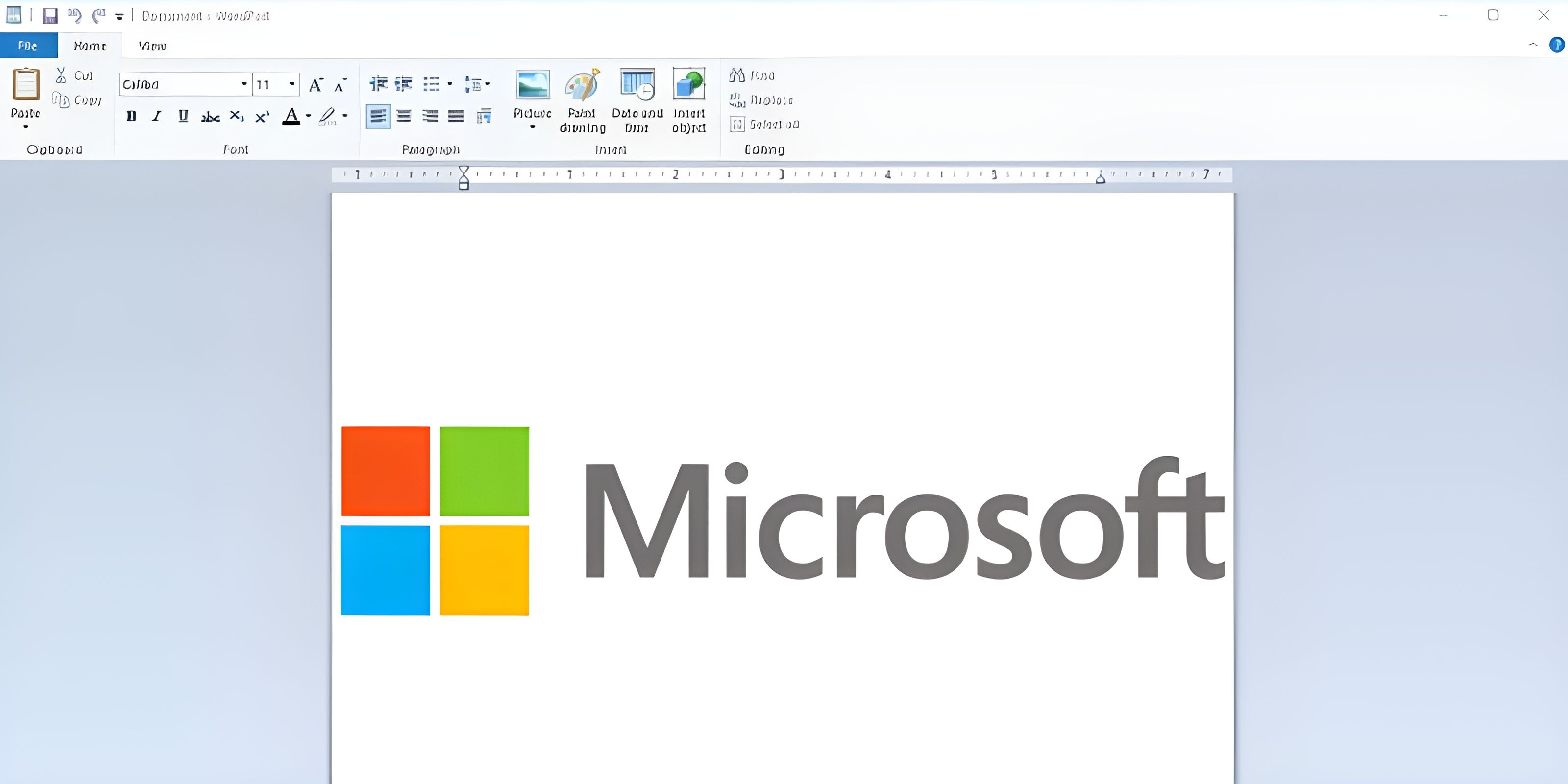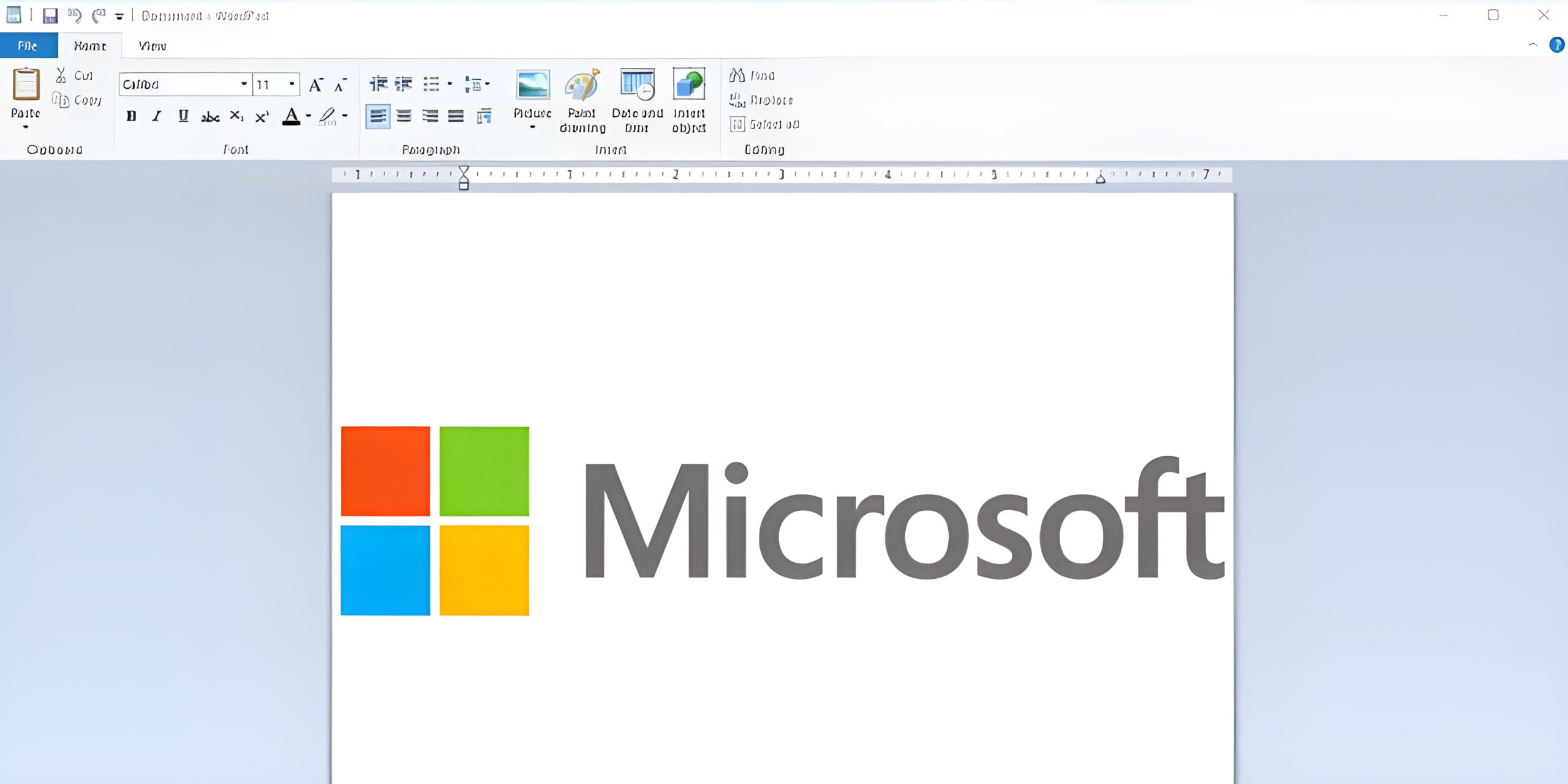
In a move signaling the end of an era, Microsoft has revealed plans to retire the beloved word processor, WordPad, a fundamental feature in its Windows operating system for almost 30 years. This straightforward writing tool initially graced computer screens with the introduction of Windows 95, marking a significant stride in document processing during its inception. However, as time unfolded, updates for this seminal program became increasingly scarce, highlighting its gradual journey towards obsolescence.
Since its launch, WordPad has weathered various transformations within the Windows operating system, seamlessly integrating into almost every iteration of Windows since its inception. Despite its endurance, the recent times have seen a dip in the developmental attention towards this utility. Its last notable update came with the incorporation of the Ribbon UI in Windows 7, followed by a facelift during the Windows 8 phase, hinting at a waning focus from the tech giant.
As of February 2020’s Windows 10 Insider Build 19551, the word processor transitioned into an optional feature, allowing users to uninstall it through the Optional Feature control panel, setting the stage for its impending departure from the default program suite.
The official announcement came as Microsoft updated its deprecated features list for the Windows client, stating unequivocally that WordPad would receive no future updates and would be phased out in an upcoming Windows release. Industry experts speculate that this might coincide with the anticipated launch of Windows 12, slated for a debut next year.
As Microsoft prepares to bid goodbye to this long-standing component, it urges users to pivot towards MS Word for crafting rich text documents with formats such as .doc and .rtf, emphasising its advanced capabilities. For enthusiasts seeking a platform to create plain text files like .txt, Microsoft nudges them towards the Windows Notepad, which is gearing up to receive novel features like autosave and automatic tab restoration, enhancing user experience significantly in the forthcoming Windows 11 update.
This decision to phase out WordPad parallels the trajectory witnessed with other classic tools like Paint, which faced a similar threat of being relegated to the Microsoft Store as a standalone application in 2017. In an unforeseen turn of events, Microsoft reversed this decision, rejuvenating Paint with its first substantial upgrade in ten years, while sidelining Paint 3D. Moreover, Cortana, the voice-activated AI assistant, concluded its tenure recently, making room for innovative AI integrations such as Windows Copilot, paving the path for a new generation of technological advancements.
As we stand at the cusp of a new era, it becomes vital to acknowledge the rich legacy of WordPad, a tool that heralded simplicity and functionality, nurturing generations of users in the art of digital documentation. Its retirement marks not only the end of a significant chapter in computing history but also heralds the beginning of an exciting future, ripe with possibilities and advancements in technology.
.thumbnailWrapper
width:6.62rem !important;
.alsoReadTitleImage
min-width: 81px !important;
min-height: 81px !important;
.alsoReadMainTitleText
font-size: 14px !important;
line-height: 20px !important;
.alsoReadHeadText
font-size: 24px !important;
line-height: 20px !important;



![Read more about the article [Funding alert] Securonix raises over $1B led by Vista Equity Partners](https://blog.digitalsevaa.com/wp-content/uploads/2022/02/71-1632947516956-300x147.jpg)





![Read more about the article [YS Exclusive] Freshworks without CTO after Co-founder Shan Krishnasamy’s quiet exit](https://blog.digitalsevaa.com/wp-content/uploads/2023/03/800X400shankrishnasamycopy-1678195649769-300x150.png)
